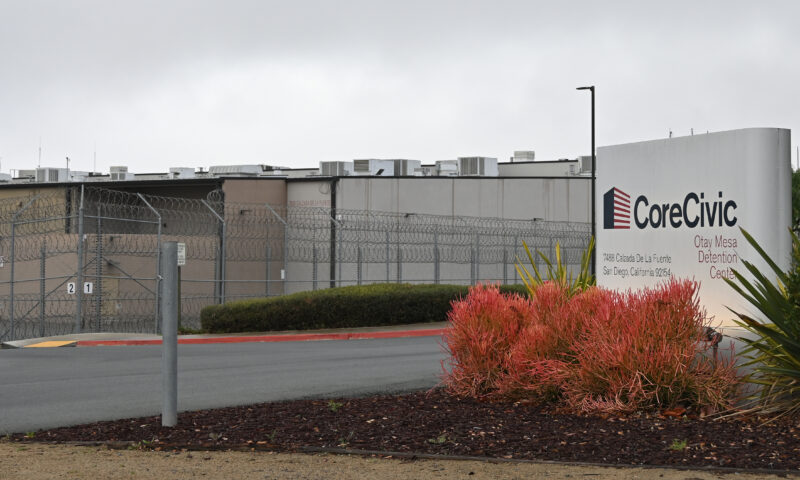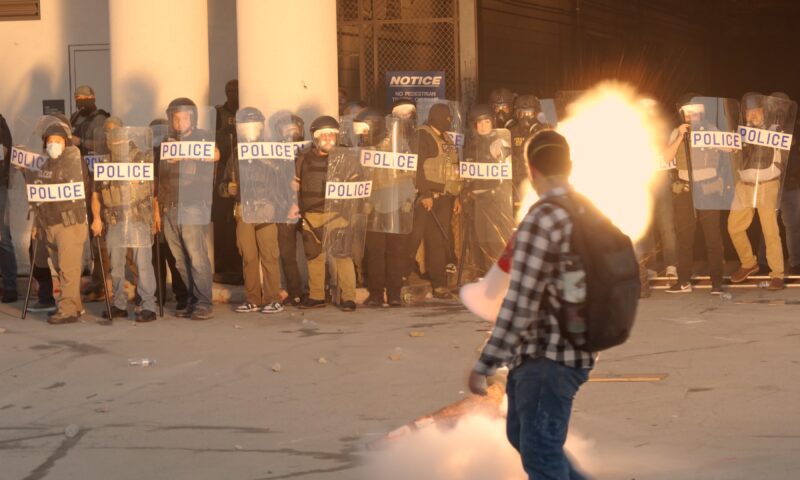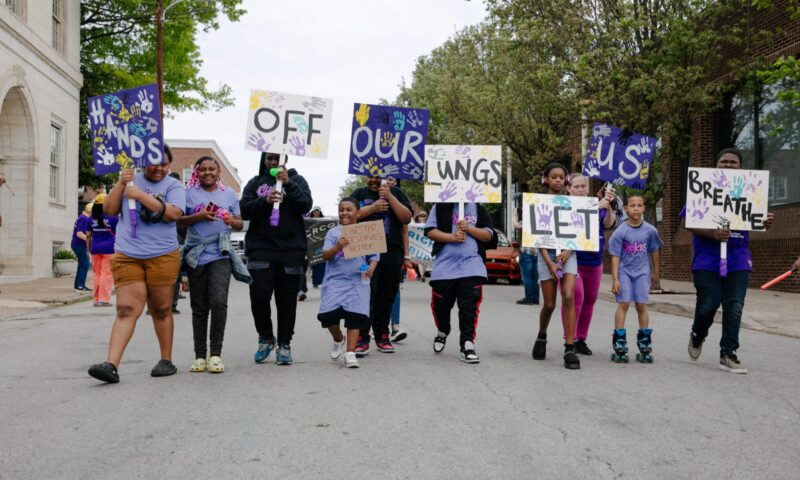Labor & Economy
Walmart Workers Threaten Black Friday Action

On the heels of growing Walmart unrest that began on Thursday, October 4 at the Pico Rivera Walmart in Southern Los Angeles, the first-ever strike in Walmart’s history, activists gathered at Walmart’s headquarters in Bentonville, Arkansas, where Walmart is holding its annual financial analyst meeting. As roughly 200 striking Walmart associates and community supporters rallied in Bentonville in the name of changing Walmart labor practices, an agreement was reached via OUR Walmart for an action aimed at Black Friday, the most anticipated shopping day of the year for consumers and retailers and the kick-off to the holiday shopping season.
On Wednesday morning, a tele-conference with striking Walmart workers and community supporters was staged to announce new calls for change at Walmart. At the helm was Daniel Schlademan, Director at Making Change at Walmart, who emphasized the push towards Black Friday. He was echoed on the call by Evelyn Cruz (Pico Rivera Walmart employee), Terry O’Neill (National Organization for Women), Sally Greenberg (National Consumers League) and Pastor Edwin Jones (from Washington, D.C.).
Colby Harris, a Dallas associate, called for better equipment, safer conditions, and better pay: “The injustice is ridiculous. We will not accept retaliation anymore. Losing my job is a small price to pay to make change.”
While the actions on Black Friday have yet to be clearly defined, a “whatever it takes” attitude seems to be in place in order to get the message to Walmart and its shoppers about workers’ frustrations and the types of treatment they have been subjected to. Harris reiterated the call for non-violent demonstrations, and expected that further rallies, strikes, and flash mobs would be the modus operandi should Walmart fail to listen to workers cries before the Black Friday deadline.
The first and most crucial item on the list of worker grievances is an end to retaliation by Walmart for workers exercising their rights to free-speech by speaking out against the retail giant. In the past, workers have been unfairly terminated and had their hours cut or made unsteady, forcing many to rely on assistance programs to ensure that their families are taken care of. Evelyn Cruz believes this isn’t what the founders of Walmart had in mind:
“Sam Walton believed in strong families and building communities. He would not recognize [his mission] in what his family has now decided to do with his company.”
Other malpractices were stressed by Terry O’Neill, who told of Walmart’s long history of discrimination against female employees. On average, women make $5,200 less annually than their male coworkers, and hold just 15 percent of managerial positions. Furthermore, Walmart has yet to outline clear procedures for employees to follow in cases of suspected sexual harassment. While disappointment and outrage followed the decision in Dukes v. Walmart – perhaps the largest sex discrimination lawsuit in U.S. history — which seemed to suggest that Walmart was too big to sue, O’Neill is optimistic that forthcoming class actions on a smaller and more regional scale will have more favorable results.
Time will tell how Walmart will respond to the workers’ demands, but one thing is clear: the pressure is on and it doesn’t seem to be going anywhere. If workers can’t have their injustice addressed, they’ll do all they can to make the day after Thanksgiving a “Bleak Friday” indeed for the Walmart sales book.
This post first appeared on Unionosity and is republished with permission.

-

 Latest NewsJune 17, 2025
Latest NewsJune 17, 2025A Coal Miner’s Daughter Takes on DOGE to Protect Miners’ Health
-

 Beyond the BorderJune 10, 2025
Beyond the BorderJune 10, 2025Detained Man Says ICE Isn’t Treating His Colon Cancer
-

 Column - State of InequalityJune 12, 2025
Column - State of InequalityJune 12, 2025‘Patients Will Suffer. Patients Will Die.’ Why California’s Rural Hospitals Are Flatlining.
-

 Featured VideoJune 10, 2025
Featured VideoJune 10, 2025Police Violently Crack Down on L.A. Protests
-

 Column - California UncoveredJune 18, 2025
Column - California UncoveredJune 18, 2025Can Gov. Gavin Newsom Make Californians Healthier?
-

 The SlickJune 6, 2025
The SlickJune 6, 2025Pennsylvania Has Failed Environmental Justice Communities for Years. A New Bill Could Change That.
-

 Latest NewsJune 6, 2025
Latest NewsJune 6, 2025Trump Won Big in Kentucky. Medicaid Cuts Could Hit It Hard.
-

 Latest NewsJune 6, 2025
Latest NewsJune 6, 2025Before Attacking Each Other, Musk and Trump Struck Blows Against Veterans, Children, the Hungry and the Sick

